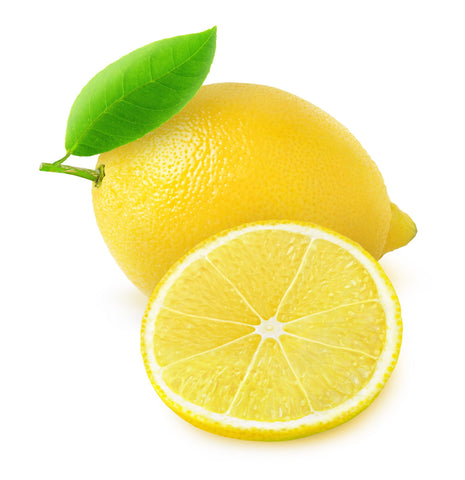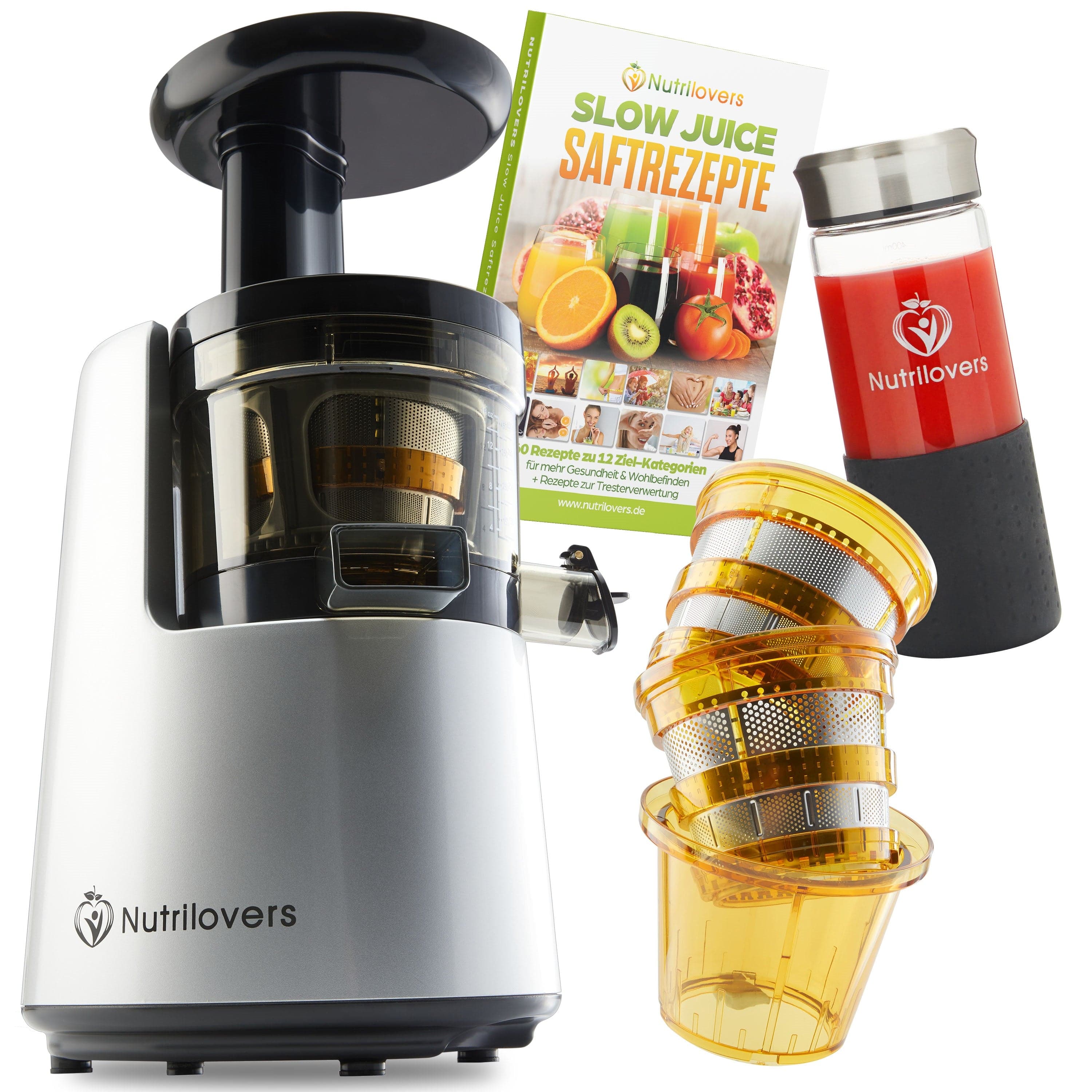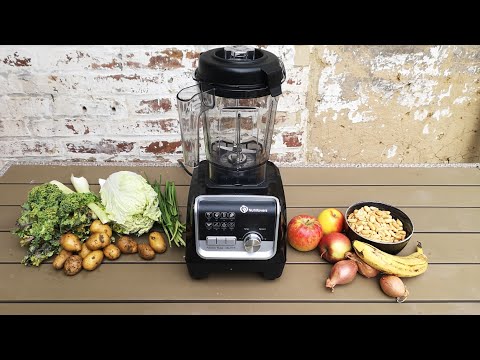🍋 The refreshing world of lemons

They're sour. But always remember the saying: "When life gives you lemons, take them with you and make delicious lemonade." Lemons are simply wonderful, and even though you'll hardly ever eat them on their own, you can make so much from these bright yellow fruits.
What you should know about lemons
Lemons have many benefits. As we all know, sour makes you happy, and with lemons, that's certainly true. They can lift your mood. They also provide you with many vitamins, especially a huge amount of vitamin C. In this chapter, you'll learn a lot about lemons that you may not have known before. These yellow fruits should definitely be on your next shopping list. We'll explain why.
The origin of lemons

Lemons originate from Asia. They were cultivated hundreds of years ago in northern India. Lemons are a cross between bitter oranges and the aromatic citron.
The lemon quickly spread throughout Asia. It was already known in Imperial China before the Common Era. Sailors and merchants brought the lemon across the sea to the Orient. From Arabia, it reached the Mediterranean in the 10th century.
Christopher Columbus himself is said to have brought the lemon to America in 1492. From then on, this sour little Asian fruit conquered the entire world. Today, lemons are hard to imagine in our kitchens.
When is lemon season?
Nowadays, lemons are imported from a wide variety of countries, making them available year-round. Lemons from Spain are supplied year-round. Turkish lemons are mainly available between October and April, and Italian lemons are in season between November and July. Between March and October, lemons mainly come from overseas.
The taste of lemons
Of course, lemons are acidic. But lemon juice isn't drunk neat. Lemon juice in a little water or soda makes a wonderfully refreshing and tangy drink. With various sweeteners, you can conjure up a tasty lemon drink in no time. It's not just kids who love lemonade.
With lemon juice, you can conjure up not only delicious and refreshing cold drinks, but also wonderful cocktails and hot drinks. Lemon drinks not only taste excellent, they are also absolutely healthy.
Ingredients & Effects - Properties of Lemons

Lemons are rich in vitamins, especially vitamin C. Just one lemon provides about half of your daily vitamin C requirement. So, if you start your day with a glass of water and lemon juice, you're already well-stocked.
Lemons are very important for the immune system. The powerful fruit acids contained in lemons fight bacteria perfectly. This is why a hot lemon is a popular and effective remedy for flu infections or stomach problems. Lemon juice can also help with heartburn.
Lemons are rich in antioxidants that protect the body from free radicals. Vitamin C is also beneficial for connective tissue. Regularly drinking lemon juice can naturally firm your skin.
Lemons also provide a lot of potassium. This ensures that muscles, heart, and nerves function perfectly. Flavonoids protect your cells. Lemons also ensure healthy and strong bones. Lemons also stimulate wound healing. Ascorbic acid is responsible for this, too.
Lemons help your body detoxify. They have a mild diuretic effect and help eliminate toxins. This makes lemons a must in detox juices and smoothies.
Lemon juice can also help with flatulence, an unpleasant feeling of fullness and digestive problems.
So, after a hearty meal, you don't necessarily have to have a shot. Lemon juice has the same, or perhaps even better, effect.
Lemons vs. Limes - What's the Difference?

Visually, lemons and limes differ in size and color. Lemons are larger, slightly oval, and yellow, while limes are smaller, round, and green. Lemons are slightly more acidic, while limes are slightly more aromatic.
If limes are yellow, this is a sign that they are overripe. If you buy green lemons, they are unripe.
Lemons have slightly more vitamin C than limes and about twice the potassium content. They have roughly the same juice content, even though limes are significantly smaller.
Lemons also contain more magnesium than limes, while limes provide more folic acid, calcium, and vitamin E.
Today, our lemons come primarily from Spain and Italy, while limes are mostly imported from Mexico, Africa, and countries in Southeast Asia. Both citrus fruits have a long shelf life. However, lemons have a slight edge here, lasting about two weeks longer.
It is important, however, to note that both citrus fruits do not like to be stored cold.
If you want to store lemon or lime juice for a long time, you should squeeze the juice from the citrus fruits and freeze them in portions. Ice cube trays are ideal for this.
How healthy are lemons?

Did you know that lemons, although sour, are considered alkaline foods? Lemon juice can help keep your body alkaline. It's said that diseases, germs, viruses, and bacteria don't thrive in an alkaline environment.
This makes lemon juice a true miracle cure for a variety of ailments. Lemons can also be a great help for stomach problems. Lemons ensure a higher pH level in the body. Your acid-base balance is balanced with the help of lemon juice.
Another interesting fact is that lemons often saved the lives of pirates and sailors. At that time, scurvy was a major threat to sailors. However, lemons provided a convenient source of vitamins. Pirates spiced up their hot rum grog with lemon juice and were spared from scurvy.
Nutritional values of lemons per 100 grams
100 grams of lemons contain:
|
35 kcal 3 g carbohydrates 2 mg sodium 10 mg calcium 170 mg potassium 30 mg magnesium 0.5 mg iron 15 mg phosphorus |
0.1 mg zinc 50 mg vitamin C 3 µg beta-carotene 0.2 mg vitamin E 6 µg folic acid 0.05 mg vitamin B1 0.02 mg vitamin B2 0.06 mg vitamin B6 |
Special: Lemon juice
The best way to start the day is with a glass of water with lemon juice. This will provide you with a large portion of your daily vitamin and mineral needs and maintain your acid-base balance.
But you can do much more with lemon juice than just drink it. You can refine salad dressings and marinades with lemon juice, and the juice of this yellow fruit adds the finishing touch to soups and sauces. You can bake with lemon juice and conjure up cool cocktails. Whether it's desserts or savory dishes, lemons can be used everywhere.
Lemons are so versatile and multifaceted that you should always have them at home. Lemons also have a long shelf life, so you can always keep a small supply in your kitchen.
🍊 Oranges
▷ The right citrus press - 10 points you should definitely consider when buying!
Bestsellers from Nutrilovers
Testimonials
What customers say about our customer service.
Frequently Asked Questions
Questions & Answers
Is "Nutrilovers" a German brand?
Yes - Nutrilovers is a German brand and company from Munich.
Our team consists of true Nutrilovers.
We love healthy eating because our well-being is our top priority.
Since 2015, we have been supporting people on their conscious path to life with a healthy diet every day.
How can I order and what is the delivery time?
You can easily order from us online here in our shop.
To do so, select your products and proceed to checkout. Once we receive your order, we'll work quickly to ensure your order is in your hands within 1-2 business days.
Can I return my orders if I don't like them?
Yes - you have a risk-free 30-day return policy.
Simply send us an email to mailme@nutrilovers.de , keyword: “Return” with your name, order number and address.
You can then drop off the package at any Deutsche Post or DHL service point.
The return address:
SW Commerce c/o Subke GmbH,
Lüner Rennbahn 26, 21339 Lüneburg,
Germany
Detailed information on thecancellation policy can be foundhere
What payment methods are available?
You can choose from different payment providers:
- credit card
- PayPal
- Skrill
- Payment via SOFORT transfer
- Invoice with Klarna
- Installment purchase with Klarna
- Google Pay
- Apple Pay
- Shop Pay
Is there a minimum order value?
There's no minimum order value at Nutrilovers. However, you'll receive free shipping within Germany for orders over EUR 99.00.
Does Nutrilovers offer replacement parts?
Yes , we usually have all
Spare parts in stock and if not, we can
Simply contact us via our
Contact form,
and tell us which Nutrilovers product you own and
which spare part you need.
How long is the warranty and guarantee valid?
We provide a 24-month warranty on new devices and a 12-month warranty on used devices.
Months.
In addition to the legally required 2-year warranty, Nutrilovers offers a 3-year warranty on the motor. (You can find the corresponding warranty terms and conditions here .)
If anything happens, we are available at any time and will take care of it - even after the statutory warranty period has expired.
Does Nutrilovers also help with questions and problems after the purchase?
Always! Simply contact us via our support center and we'll get back to you within 24 hours on weekdays.

































